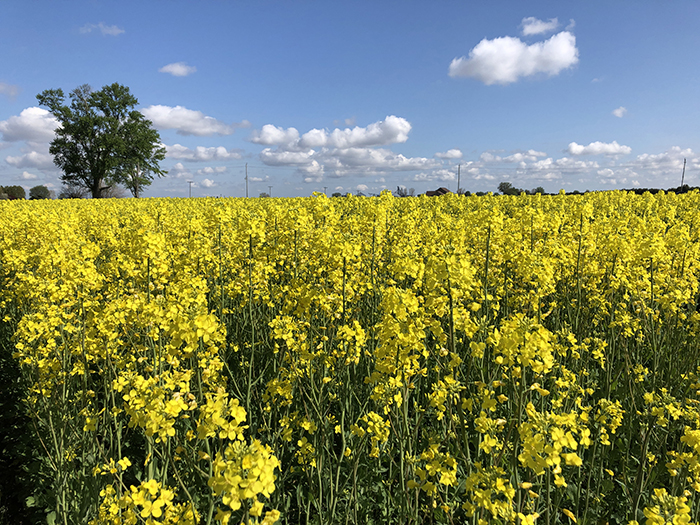
By Pam Wright
Local Journalism Initiative Reporter
A proposal to move the needle and increase Chatham-Kent’s farm tax ratio has been turned down by municipal council once again.
The motion, put forward by West Kent Coun. Lauren Anderson, to raise the farm tax rate to .23 per cent from .22 per cent, was defeated in a 10-7 vote. The decision was met with loud applause by dozens of agriculture supporters who packed into the gallery.
Four deputations against the increase were also presented to council and these also received vigorous applause from the crowd.
In defense of her motion, Anderson said it was not about farmers “paying more,” explaining the reasons for the original tax decrease council adopted around a decade ago “no longer exists,” as local farmers are no longer struggling.
The initial decrease down to .22 per cent from .25 per cent was meant to help farmers deal with high interest rates and low commodity prices more than a decade ago.
“That reason no longer exists,” Anderson told council. “That hasn’t been the case for a very long time.”
However, several councillors said they couldn’t support the change as farmers are again facing inflationary pressures and high input costs for crops. Others said the municipality should wait until new Municipal Property Assessment Corporation (MPAC) assessments are completed by the province, a process that was derailed by the COVID-19 pandemic.
Ontario is currently working off of MPAC assessments from 2016 and the government hasn’t made a move to restart the process.
In his deputation, Kent Federation of Agriculture president Brad Snobelen said the previous council was right to defer the matter, and it’s not possible for the current council to make an “informed” decision about upping the farm tax ratio without new MPAC numbers.
Other councillors vetoed the move, saying the stakeholder engagement piece of the process fell short as the time frame between the original motion and the vote did not allow for full engagement with the agriculture community.
North Kent Coun. Jamie McGrail was one of the councillors who couldn’t support the hike and suggested voting on the farm tax increase apart from other administrative recommendations.
McGrail also indicated the timeframe was insufficient for public input.
“I believe every one and every group should have their say,” McGrail said. “This clearly falls short of due diligence of stakeholder engagement. We missed the mark on this one I believe.”
However, Chatham-Kent’s chief financial officer Gord Quinton said the quick turnaround was due to the looming deadline to send out municipal tax bills.
Changing the ratio does not increase the amount of money the municipality collects in taxes; it merely shifts the cost sharing. Under the present system, commercial and residential taxpayers carry a larger share of the burden than rural ratepayers.
Chatham-Kent is one of very few communities in Ontario that has a farm tax ratio below the .25 per cent. Increasing the rate is an idea that’s been brought forward by previous councils, but has always been defeated.






